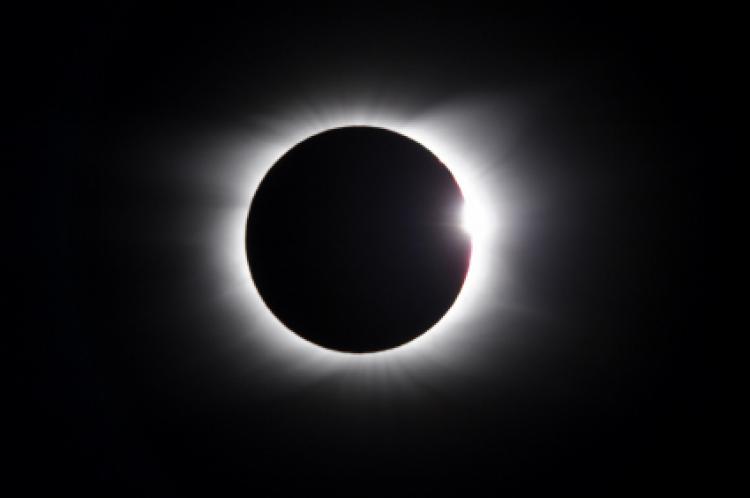Total Solar Eclipse In The North Atlantic
A solar eclipse typically occurs when the sun and the moon seem to have the same size as both heavenly bodies form an angle that is around half a degree of an arc in diameter. When this happens and the moon is in between the Earth and the sun, it basically blocks out the light coming from the sun.
These occurrences normally treat inhabitants of small islands in the middle of the ocean with a few minutes of darkness at around noon. The moon appears to be surrounded by the glow of the corona, which seems to form a halo around it. This part of the Earth is enveloped in darkness and the temperature goes down to a considerable degree, which startles wildlife.
The March 20 solar eclipse also has a similar effect. The moon’s shadow will move across the North Atlantic and before going into the Arctic. Svalbard and the Faroe Islands are the only places where a total eclipse will be observed. A partial eclipse will be witnessed by people in North Africa, Russia and Europe.
Hopkins Observatory director Jay Pasachoff together with his team are in Svalbard to observe the eclipse. It will be the 59th eclipse for the astronomer, who is an expert on the most unusual feature of the sun, the corona. The light is not as bright as the sun itself and will only be noticeable during an eclipse.
Dr. Pasachoff has witnessed eclipses from different locations including camps, ships and planes. He has gone to every continent to witness this rare astronomical event. He has written about a solar eclipse he witnessed in China in 2009, which was considered the longest in the last ten years. He is already planning to observe a number of eclipses in the coming years.
He indicated that while he observes eclipses for science, he is also thrilled about the perfect alignment brought about by this astronomical event. Thousands of tourists flocked into Svalbard, which is a former whaling base located in between the North Pole and Norway.
Dr. Pasachoff revealed that the weather in the area was partly cloudy, which is already good since the area does not experience clear weather often. He added that he is hopeful that he will be able to witness a total solar eclipse on the island after checking cloud statistics provided by weather satellites in the last two decades.
